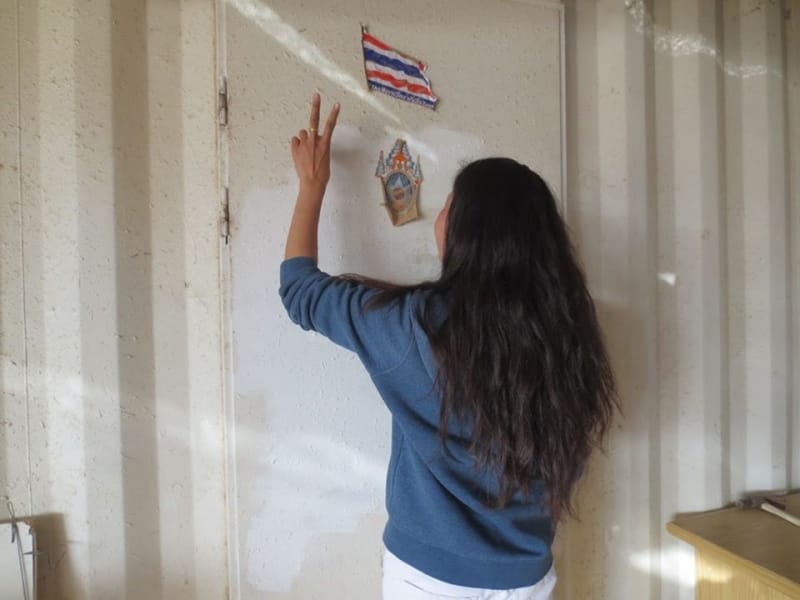״באתי לעבוד בישראל ב-2014 כי היו לנו בעיות כלכליות. אני מכפר בשם אובון והמשפחה שלי מגדלת קני סוכר ואורז. ראש הכפר שלי הודיע שיש הזדמנות לעבוד בישראל ולקחתי אותה. בתאילנד נמצאים ההורים שלי, ארבעה אחים, בעלי ובני בן ה-13 – אליהם אני הכי מתגעגעת… מה שחוויתי בישראל לא היה מה שציפיתי לו. עברתי הכנה בה אמרו איך זה יהיה בישראל ומה יהיו התנאים, אבל התיאורים בהכנה שונים מאוד ממה שחוויתי במציאות – הכל הפוך כאן. הכי קשה מבחינתי זו העבודה בחום, אבל אין הרבה מה לעשות עם זה. כשקיץ, אנחנו עושים פחות הפסקות כדי לסיים מוקדם יותר. כשאחזור לתאילנד אני רוצה לפתוח עסק, אולי חנות למכור דברים. אני רוצה שהישראלים ידעו שאנחנו עובדים כאן, עובדים קשה, ומגיע לנו לפחות להרוויח את שכר המינימום…״
"I came to Israel in 2014 because we had money problems. I'm from Ubon and my family grows sugarcane and rice. The head of my village announced there was an opportunity to work in Israel so I took it. In Thailand, I have my parents, four brothers, a husband and my 13 year old son – they are the thing I miss most in Thailand. The experience here isn't what I expected. I was in a training about what it would be like in Israel and the conditions. It's not what they described, everything is upside down [חכוך]. The hardest thing about my work is being in the heat, but there's nothing to do about it. When it's the summer, we take less breaks so we can finish earlier. When I go back to Thailand, I want to open a business, maybe a store to sell things. I want Israelis to know we work here, we work hard and deserve the minimum wage."
*מסר קצרצר לחברה הישראלית ששלחה אלינו מהגרת עבודה בחקלאות, לציון יום האישה 2017
*A short massage sent to us from a Thai migrant worker, for the Int. Women Day 2017


